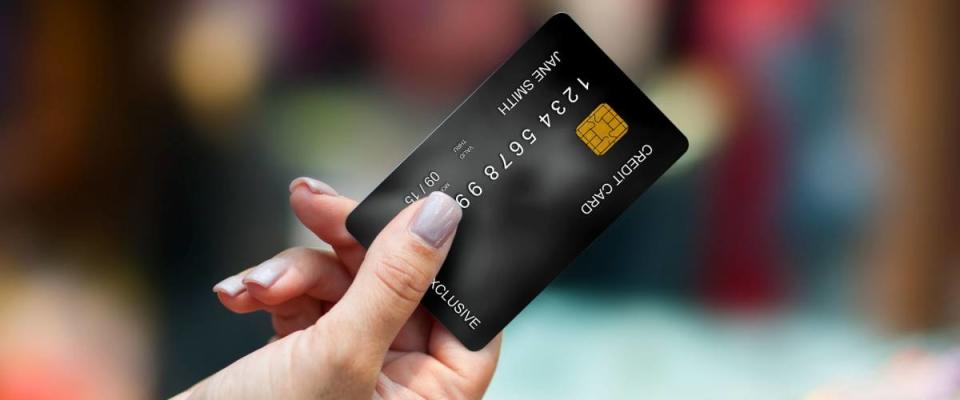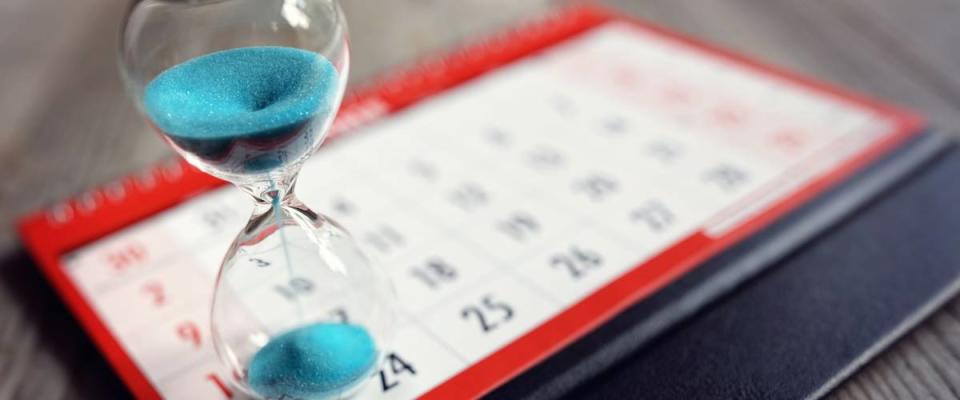Is Your Teen Ready for a Credit Card? Here's How to Be Sure

Every day, parents are faced with the gargantuan tasks of getting their kids up to speed on life skills and readying them for success outside the nest. Those are tough jobs for parents, but they're crucial.
Getting a grounding in personal finance is vital for kids' financial futures, and research from the FINRA Investor Education Foundation found that high schoolers who take personal finance classes go on to have above-average credit scores and lower rates of debt delinquency as adults.
Yet despite these overwhelming benefits, local school systems across America offer few or no financial literacy courses. The fact is, it's up to you to teach your kids about spending, saving and using credit cards properly.
When it comes to credit, the laws allow teens to legally obtain their first credit cards at age 18. But there's the potential that they'll add to the more than $1 trillion in credit card debt held by Americans.
Many parents balk at the thought of giving their kids credit cards, given the risks that they'll wind up with debt — and bad credit scores.
While building and maintaining a good credit score opens doors to college student loans and home ownership, a history of bad credit can shut them just as fast.
How are parents supposed to navigate this issue?

Your kid doesn't have to jump into the deep end with credit right away. The Credit Card Accountability Responsibility and Disclosure Act (CARD) of 2009 gave parents a bigger role in whether children get credit cards.
For credit card applicants under 21, the CARD Act requires proof of income to qualify for an account. If a teen doesn’t have verifiable income, he or she needs to have a parent or guardian co-sign for their card.
There are lots of options available to help you manage your teen's credit. For example, you can request that your card issuer add your child to your credit card account, making him or her an authorized user. Or you may decide to set kids up with their own prepaid debit cards.
Getting your teens started this way will allow you to monitor and coach them through their first purchases and bill payments, and ensure that they develop good habits.
But before you sign on to giving your teen his or her first credit card, take these steps to provide a good grounding in financial basics.
1. Get your kid a checking account

Children between ages 13 and 16 are old enough to understand the basic concept of financial responsibility and should be ready to start to use a checking account.
Parents can gauge a teenager's financial responsibility by monitoring how they manage a checking account. If your teen has either overdrawn the balance or ignored the account, he or she is not ready for a credit card.
On the other hand, when teens put money in and make purchases regularly, it's a good indication of interest and engagement with their finances.
Most banks offer checking accounts that come with monitoring tools for parents. If your teen manages his or her account responsibly and regularly, he or she might be a good candidate for a credit card.
2. Monitor spending behavior
Parents should monitor children's everyday spending to gauge whether they are responsible spenders.
Do they ask you for money often? Do they seem to want to buy more things than they can afford? If you’re paying their cellphone bills, then how often do they make in-app purchases, go over their talk time, or otherwise overspend on your dime?
If your teenager is showing responsibility with everyday spending, he or she could be a good candidate for a credit card. However, if teens spend irresponsibly, impatiently or impulsively, or if they do not seem to understand the value of your money, then they probably are not ready yet.
They may need some lessons on saving up to buy the things they want, or on delaying purchases. A savings account is a great tool to help even big-spending teens get into the habit of splitting their income and putting some money aside for later.
3. Teach how a credit card works

When starting out, most teenagers and not a small number of adults perceive credit cards as free money. They think all they need to do is make the minimum monthly payment to maintain a decent credit score. Uh, nope.
Get teens started on understanding how credit works with the following exercise: The next time your kid asks you for money, make it a loan — and explain that you'll be charging monthly interest on the money that's owed.
Explain to kids they don't have to pay you back all of it right away, but that the sooner they pay you back, the less they will pay, and the more trust they'll be building with you. More trust might equal more loans in the future.
If you have teens who won't play along, then they're not willing to understand the game and might not be ready to get involved with real-world credit just yet.
Once kids have mastered the credit simulation and you think they might be ready for the real deal, make sure they understand credit in more detail: the importance of making monthly payments, what a credit score is and how to have a good one, lines of credit, APR and credit card fees.
4. Demand honesty
Honesty is a big indicator of maturity and responsibility. When teens are dishonest about spending, it should be a huge red flag for parents.
Some examples of dishonesty are spending their lunch money (or any money you give them) on something else and trying to hide it, or "borrowing" money from your wallet without asking.
These kinds of actions indicate that children are not in control of their own money and are unable to save up on their own for the things they want to buy.
While small moments of dishonesty might not seem like a big deal, things can quickly spiral out of control once a teen has a credit card. But instead of only punishing the bad behavior, you can take this time to help your kid develop better spending habits.
5. Set deadlines

One of the most important credit card rules is making your payments by the due date every month. Failure to pay on time can lead to late payment penalties or cancellation of the card.
Before your teenager gets a credit card, you should be sure that he or she can meet deadlines reliably.
When teens are procrastinators or are always asking for homework extensions, they might not be ready to make payments on time. If your teenager consistently misses deadlines, you should get to work on helping the kid develop organizational skills.
Your teen's cellphone habit can be useful here. Get kids into the habit of putting assignment deadlines, payment due dates, and appointments into their phones and setting a sound or vibrating alert in advance of the date and time.
6. Look for a commitment to earning and personal growth
Another way to see if teens might be ready for credit cards is to assess their commitment to their own financial futures.
Does your teen have a side hustle or a part-time job? Does she track her spending? Is he eager to save or set aside money for short- and long-term goals?
If your teen is showing signs of commitment to making more money and creating financial goals and achieving them, then he or she might be ready to get involved with some form of credit — maybe even the plastic kind.
Join the MoneyWise mailing list. You’ll get the latest financial tips and news, straight to your inbox.

